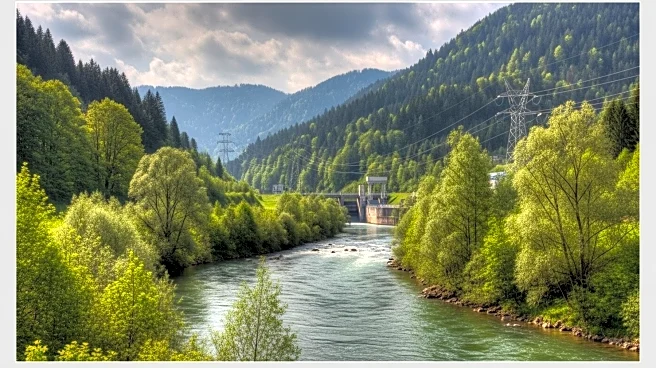What is the story about?
What's Happening?
Consumers Energy has announced the sale of its 13 hydroelectric dams located along five Michigan rivers to Confluence Hydro, an affiliate of Hull Street Energy, for a symbolic price of $1 each. This decision is part of Consumers Energy's strategic shift towards renewable energy sources, aligning with its Clean Energy Plan to end coal use by 2025 and achieve net zero carbon emissions by 2040. The sale includes a 30-year agreement for Consumers Energy to purchase energy, capacity, and renewable energy credits from the dams, transferring future investment and operational costs to Confluence Hydro. The move is expected to lower long-term costs for Consumers Energy customers while preserving the reservoirs' economic, recreational, and ecological benefits.
Why It's Important?
The sale of the hydroelectric dams marks a significant step in Consumers Energy's transition towards renewable energy, reflecting broader industry trends as utilities seek to reduce reliance on fossil fuels. This shift is crucial for meeting Michigan's clean energy mandates and addressing climate change. By divesting from hydroelectric facilities, Consumers Energy can focus on expanding its investments in solar and wind energy, which are more aligned with current and future energy needs. The transaction also highlights the importance of balancing cost reduction for consumers with the preservation of community resources, ensuring that local economies and ecosystems continue to benefit from the reservoirs.
What's Next?
Confluence Hydro plans to seek renewal of the dams' federal licenses, which begin expiring in 2034, and aims to modernize the facilities to maximize their contribution to the grid. Consumers Energy will continue operating the dams until ownership transfers, and affected employees will be offered positions with Confluence Hydro. The sale is subject to approval by federal and state regulators, including the Federal Energy Regulatory Commission. Consumers Energy will hold further community meetings to discuss the implications of the sale and reservoir management, ensuring transparency and community involvement in the transition process.
















